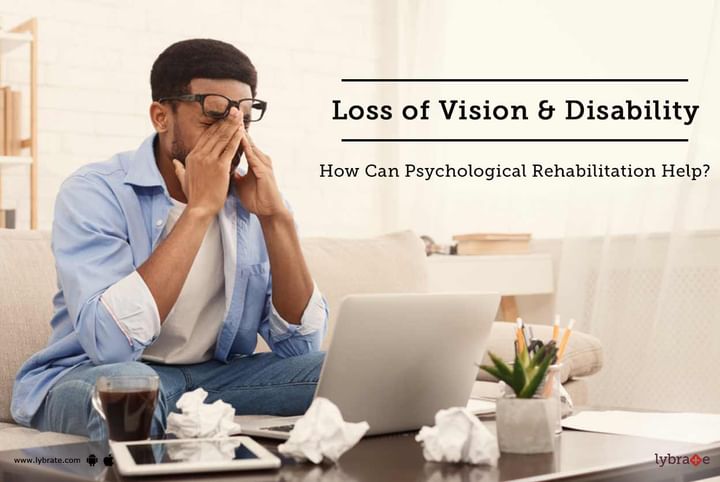Loss of Vision & Disability - How Can Psychological Rehabilitation Help?
Visual impairment is a decreased ability to see to a degree that causes disabilities or problems, not fixable by usual means, such as glasses. Loss of vision may be acquired and develop suddenly. It may affect one or both your eyes.
What Causes Loss of Vision/Disability?
Loss of vision and disability can result from the following –
-
Clouding of normally transparent eye structures
-
Abnormalities in the retina
-
Abnormalities in the nerves carrying visual signals to the brain from the eyes
Changes in vision may also occur due to conditions like glaucoma, macular degeneration and diabetic retinopathy.
Can Psychological Rehabilitation Help Manage Visual Impairment?
Vision loss and disability often interfere with one’s functional ability in everyday tasks. Sometimes, the disability may be so devastating that it affects a person’s mental health and behaviour. Psychological Rehabilitation is designed to help such visually impaired people deal with disability or impairment.
Psychological rehabilitation involves a wide range of methods that aims to restore functioning after loss of vision, just as physiotherapy restores functioning after an injury or stroke. The program allows patients to continue living independently and maintain their quality of life despite vision loss.
Complete or partial loss of vision can jeopardize one’s career – you may not be able to continue with your job due to the disability. Many people suffer psychological and physical challenges, which force them to escape the outside world. Psychological rehabilitation helps in the following ways –
-
Helps individual understand and accept the disability, and find ways to cope with it
-
Motivates them in to keep trying
-
Cope with the pain and depression
-
Overcome feelings of fear or despair
-
Prevents the person from sinking into a state of self-pity, which may hinder recovery
Rehabilitation Psychology adopts a holistic and expansive approach to treat visual impairment.



+1.svg)
